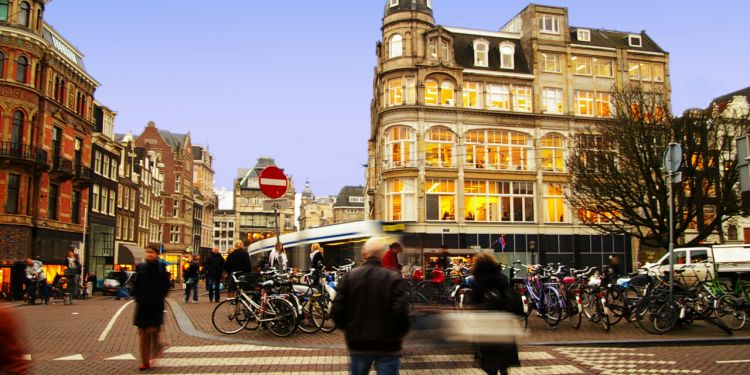The Dutch lifestyle

In the Netherlands, the Dutch have a “work hard, play hard” mentality. For them, there's a time and a place for everything. When looking at this country as a whole, their culture and lifestyle can be described as “nette”, which translates to “neat”. To make sure you keep in line with this “nette” culture, read on to find out about what to do and what not to do if you're moving to the Netherlands.
Culture in the Netherlands
In Dutch culture, punctuality is very important. Even if you're meeting up with your friends, it's a faux pas to show up 5 minutes late. Of course, if you have a close friendship and you let them know as soon as you know you're going to be late, it can be forgiven a few times.
The Dutch are also huge on coffee. It's such an important component of their life that they have a name for it: koffietijd (coffee time). Usually, this is between 10:30 am to 11:00 am. During this period, it's acceptable for you to get up from your desk at work and get a cup of coffee. You're even encouraged to socialize with your coworkers.
Another popular time is between 3:00 pm and 4:00 pm, which is considered afternoon tea time. You can have either tea or coffee, or choose not to partake in drinking any beverages at all. However, it's expected of you to take a few minutes' break at least, so you have some time to relax.
If you have servicemen over at your house, you're also expected to offer them a cup of coffee or tea.
Etiquette in the Netherlands
The Dutch have a reputation for being direct and blunt, so much so that some other cultures consider them rude at times. When you interact with them, they may seem nosy as well.
However, try not to take this personally. You'll quickly realize that Dutchies are quite open and tolerant. If you ever feel uncomfortable with any of their questions or inquiries, simply give them a blunt answer back of, “I'm sorry, I don't wish to discuss that” or “I'm sorry, I don't feel comfortable discussing that.” More often than not, they'll be very understanding.
Traditions in the Netherlands
One controversial Dutch tradition is the presence of Zwarte Piet during Sinterklaas, which is a celebration that's similar to Christmas. It's celebrated in early December, and they have an analogous figure to Santa Claus who's called Sinterklaas, or Saint Nicholas.
Sinterklaas has his little Dutch helpers, including Zwarte Piet (Black Pete or Black Peter). Most people dress up as this character with black paint smeared on their faces, red lipstick on their lips, and dark, curly-haired wigs.
While some claim Zwarte Piet is black from the soot in the chimneys he slides down, perhaps the real reason is more nefarious; this holiday gives people an excuse to dress up in blackface. As you can imagine, Sinterklaas has gotten lots of protests over the years, and some municipalities have even banned Zwarte Piet from their official celebrations, such as Amsterdam. Many municipalities have followed suit and now opt for Sooty Pite instead of Black Pete.
Sinterklaas is the worst of them; rest assured, the rest of the Dutch traditions are much more innocent. For instance, there's Koningsdag (King's Day), which commemorates the king's birthday on the 27th of April (unless it's a Sunday). All throughout the country, there are celebrations and festivals.
Another tradition is Carnaval (carnival). This has Catholic roots and is celebrated in regions like North Brabant and Limburg. You can partake in these celebrations on the half-week before Ash Wednesday.
Also, an important one to keep in mind is Dodenherdenking (Remembrance Day) on the 4th of May. This is a special day where the Dutch remember all those who perished in World War II, including both soldiers and civilians. At 8:00 pm, no matter where you are, all public services, retail shops, and restaurants will hold two minutes of silence to pay their respects. It's heavily frowned upon to chit-chat during these two minutes.









